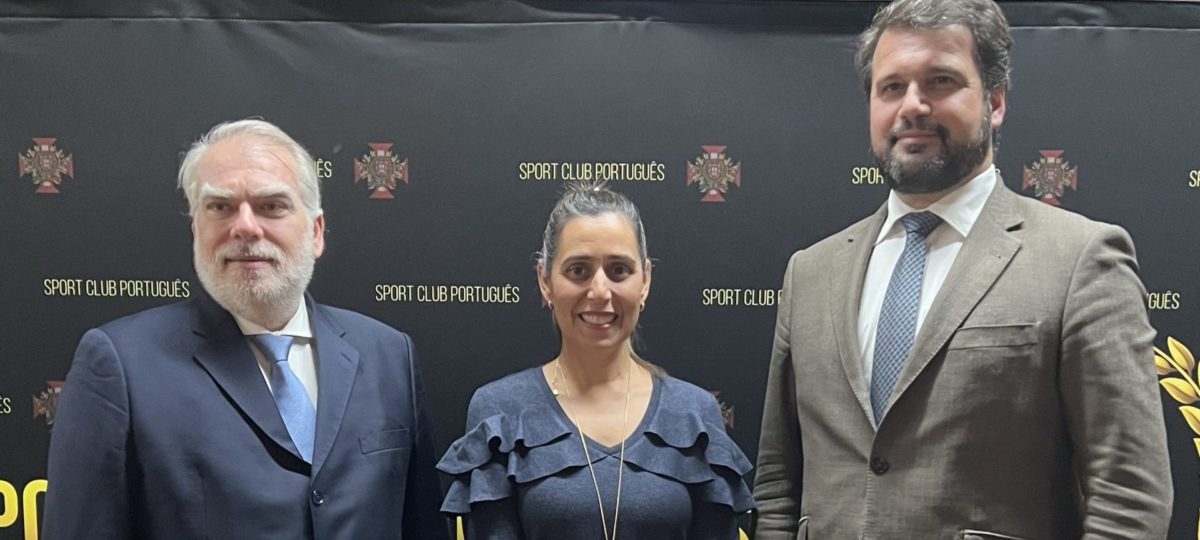Secretary of State João Paulo Correia visits Sport Club Português, after participating in ONU’s Youth Forum
The Secretary of State for Youth and Sports, João Paulo Correia, visited United Nations’s headquarters in New York and also met the Portuguese community in Newark, by visiting the Sport Club Português, accompanied by the Consul General of Portugal in Newark, Luís Sequeira, where they were warmly received by its president, Helena Vinhas.
In an exclusive interview with Luso-Americano, newspaper, the Secretary of State spoke about this visit and the measures the Government has been implementing to guarantee a better future for young people.
What was the purpose of this visit to the USA and the United Nations?
“I am representing the Portuguese Government in the youth forum of the United Nations Economic and Social Council.
Portugal is percepted internationally as a country that gives voice to young people, placing young people in the decision-making bodies of these policies.
In these two days at the United Nations, I had several meetings, and I was able to share with the other countries, what the Portuguese Government has been doing, along with its youth and the results of that work.”
At the moment, Portugal has the most qualified young generation ever.
Are these measures a proof of the Government’s confidence that these young Portuguese people are ready to gather new ideas and different perspectives for their own future?
“Yes. Around 50% of 20-year-old Portuguese young people go to college. 42% is the European average.
Recently, Portugal ce-lebrated the 49th anniversary of the 25th of April revolution.
This was a historic milestone that happened for several reasons, including democratization, decolonization, development… and to establish Portugal as a country with a promising future for young people.
Today, 49 years later, having 50% of young people attending higher education is a sign of the success of investment in public schools and families financial support, so that they can have their children going to college.
Another thing that is positive is the school dropout rate, which is currently at an all-time low.
There is no doubt that we have the most qualified generation ever and it must also be at the service of the national economy and for that we still have to respond to some challenges.
There are two main challenges that we consider a priority because they affect many young people, who are: unemployment. The youth unemployment rate dropped from 25% to 19.9% in one year. By the end of 2022, we had already recovered the unemployment rate to pre-pandemic values. But it is necessary to continue. The economy must continue to grow to increase the number of jobs.
Another matter is the access to housing. This year, the Government took the largest share of the recovery and resilience plan for the construction of housing projects”.
The young tax rate measure is relatively recent. Can you tell us a little about this measure?
“When young people start their professional path, they have to quickly emancipate themselves.
Portugal has the highest average of countries leaving home in Europe.
A young Portuguese person leaves home at the age of 33 (on average).
We want to reduce this average and for that, measures such as the “IRS Jovem” have to be created, which allows young people, when they finish their studies and enter the job market, to have more disposable income.
Therefore, this measure pays much less IRS during the first 5 years to have IRS savings that start at 50%.
Plus, the increase in the family allowance for young people with children and the offer of school manuals, which allows families to save a lot, as well as the drastic reduction in the price of transport passes. Families who paid 120 euros a month are now paying 40 euros, which at the end of the year represents a big amount of savings”.


